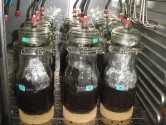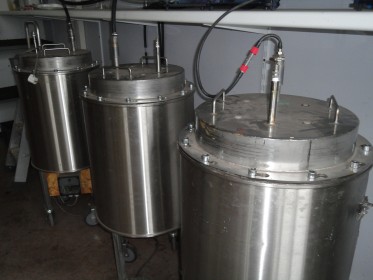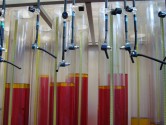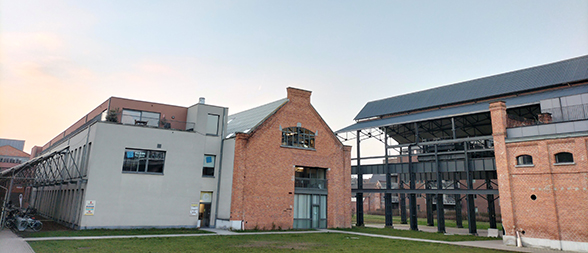Feasability – Anaerobic digestion process
When little information is known on the suitability of the substrates for anaerobic digestion, 2 important tests are available to evaluate if a substrate or a mixture of substrates can sustain stable fermentation.
Biogas Production Potential (BPP) test
Determines the maximum amount of biogas that can be produced from a given feedstock. The feedstock is incubated at 52°C (thermophilic) or 37°C (mesophilic) and is left to ferment batch wise. The volume of the biogas produced is measured and the amount of methane (CH4) and carbon dioxide (CO2) determined. This test provides a first estimation of a substrate’s potential for anaerobic digestion.
Lab-scale continuous fermentation test
Mimics full-scale fermentation of a single substrate or a combination of substrates. The test allows to optimize the digestion process on a long-term (input recipe, biogas productivity, organic loading rate, digestion temperature, toxicity, nutrient requirements,…) and provides the necessary info to go to a full-scale plant, eliminating the need for a more expensive pilot-scale testing. Testing can be performed at small scale (6L) and medium scale (60L).



